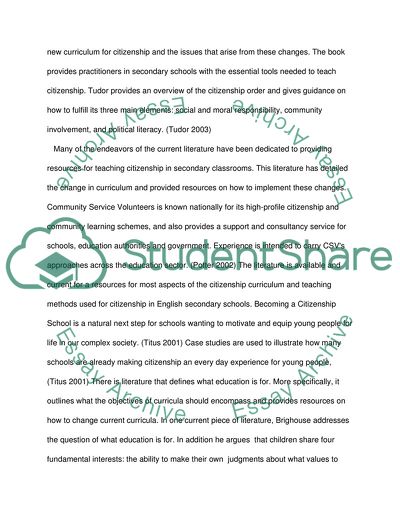Retrieved from https://studentshare.org/social-science/1535544-citizenship-curriculum-guidelines-changed-the-methods-of-teaching-citizenship-in-english-secondary-schools
https://studentshare.org/social-science/1535544-citizenship-curriculum-guidelines-changed-the-methods-of-teaching-citizenship-in-english-secondary-schools.


